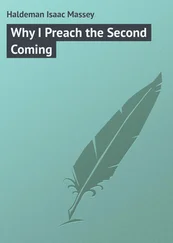Among the farm’s ghosts was the soul of a Standard Five. One morning, nineteen years earlier, the boy had drowned while swimming in the far dam, up near the ruined, roofless buildings of what was still called Old Goas, where the original farm had been. In theory, we lived at New Goas, but nobody called it that. Back then, the far dam had been used for the cows’ midday drinking. This was when Goas had more cows. There had once been a fence around it so the farmhands could check for missing cows after they were corraled. Now the fence was gone, as gone as the water, although you could see the remnants of it flattened into the dust by years of hooves.
He wasn’t a very demanding ghost. Some mornings he’d come and stand by our coffee fire. In the lingering dark, we’d huddle, jostling each other with our empty cups, waiting for the coffee to percolate. You knew he was there, because the smoke started wafting in the wrong direction, into the wind. Obadiah said the boy was using whatever breath he had left to push the smoke out of his eyes. The dead can’t use their hands, Obadiah said. He also said the boy was a Twsana, the only Twsana at Goas at the time he drowned, and that he visited us for some warmth and to be remembered a little. A boy who died so far from his people. There’s nothing criminal about needing to be spoken of once in a while. But it happened so long ago, no one remembered anything else about him other than that he died and that he was a Tswana. So whenever anybody claimed the smoke wasn’t behaving according to certain meteorological laws, we made things up. It didn’t matter who said what on those mornings. We were too cold to care, and people murmured into their coats. We all claimed the mantle of being as lonely as that boy must have been the moment he went under.
“Born in Gobabis, son of a rich chief,” said one voice.
“True,” said another. “His father — before the drought of seventy-nine made him a poor man — owned four hundred head of cattle.”
A third voice, or maybe it was the first. “But at Goas, the boy roamed in bloody feet.”
“Why bleeding feet?”
“Someone stole his shoes.”
“Ah yes, and rich men’s sons are tender-footed.”
“That’s true.”
“Tender-footed, but he knew how to swim.”
“True. He had lessons at the swimming pool for whites in Windhoek.”
“So what happened? If he knew how to swim, why’d he drown?”
“Sadness.”
“I see, yes.”
“And then he sank.”
“There was enough water to drown?”
“A rare year.”
“And they didn’t find him until the cows began acting strange.”
“They wouldn’t drink any of that water.”
“Then they trampled the fence.”
“Yes, and then a shepherd — not Theofilus, this was even before Theofilus — pulled himself up and looked over the edge.”
“That boy’s head was floating like a cabbage.”
Our feet were cold, our hands; we crowded to the fire and hunched toward it with our empty coffee cups. We watched each other’s breath more than we listened to any words. Those mornings, it was less that the sun would rise than that the darkness would simply pale. And it always, always came back to his loneliness, how he was the single Tswana on a farm of Hereros, Damaras, Namas, Coloureds, Ovambos. There were even two Bushmen at Goas then, two Bushmen who could at least talk to each other. We forgot about the stampeding cows, something nobody ever believed anyway. Cows at Goas never did anything that dramatic.
Our voices in the changing light:
“Forsook, the boy was.”
“Aren’t we all?”
“Our Lord, the same.”
“And he didn’t call for help. He knew nobody would come. The one certain thing about calling for help.”
“And the cows?”
It was a rare woman’s voice that answered, a voice we didn’t recognize.
“The cows watched.”
Nobody said anything after that. There was the slow rise of the smoke. Then it wandered away, toward the boulders beyond the toilet houses.
Seasons at Goas, as much as you can call cold, hot, and more hot seasons, catapult into each other. Days too. Winter mornings bleed to summer afternoons. And memory is as much a heap of disorder as it is a liar.
The spiraled ash of a spent mosquito coil. A book with a broken spine lying facedown. A row of tiny socks drying on the edge of a bucket.
12. STORY OF A TEACHER’S WIFE
Tuesday and the beautiful and sleek and unsmiling and too good for us Mavala Shikongo is gone. The only single woman teacher to bless an all-boys boarding school so far in the veld even the baboons feel sorry for us. They come and shit by our doors. Yes, Mavala Shikongo has escaped Goas after a scant three weeks. Three weeks; the universe had only just begun to be merciful. The word is, she’s found a better posting at a junior primary in Grootfontien. But twenty-one days was enough for us all, single or divorced, or wanting to be divorced, decrepit or spry, morally repugnant or generally decent — every last one of us — to fall, to stagger, to cave into love with Mavala Shikongo.
She had arrived not long after I had. No longer was I the new teacher. Anyway, my novelty was short-lived. I wore pants. The brief moment she graced the farm, Mavala Shikongo lived a quarter mile up the road, cloistered, in a room that had once been the principal’s attached garage. She was Miss Tuyeni’s, the principal’s wife’s, sister.
She ignored us. Three weeks we were invisible. Long school-day afternoons she never once stopped by Auntie Wilhelmina’s fence to monger the latest lies, only went back to her room at the back of the principal’s house, to her books. Festus reported, having spied the mail, that she was studying for a university course in England by correspondence. She’s not satisfied, it was said. She doesn’t even want to be a teacher, it was said. She wants to be an accountant. This was swooned over. She’s going somewhere in this world, Mavala Shikongo is. She’s not going to lie down with the cows at Goas. Women rise higher now. The war did it. Because — not only skirts, not only textbooks — Mavala Shikongo’s a genuine hero of the struggle herself. An ex-PLAN fighter. Not even twenty-five and this girl’s shot her share of Boers. Those blinkless eyes, it isn’t hard to imagine them staring down a barrel. How many times those days did we moon by her classroom windows? On our way to the toilets, just to catch a glimpse. Three weeks we circled, coward vultures from a distance. And now look: Mavala Shikongo’s battered mustard suitcase is riding away in the back of the priest’s bakkie. How are we going to get up in the morning without the sight of her charging across the sand in her saucy black heels, those inspiring city shoes? Only Mavala Shikongo could lure us away from our dirty dreams on the coldest mornings. Days when our fingers cracked like the branches in the coffee fire and our scrotums didn’t loosen until after third period break. How to warm a desert winter now?
We’re all deep in mourning in the singles quarters and nobody feels like walking out to the road to wait for a hike into Karibib. Obadiah wanders over to my room and offers me a freshly peeled carrot. He invites me for an afternoon drink in his Datsun. I follow him out to the car. Obadiah’s Datsun is mired in the sand behind his house, near Antoinette’s chicken coops and laundry lines. An old Windhoek taxi, it will never, come the Second Coming or even the Third, drive anywhere again. Still, Obadiah has prophecies. Prophecies of the engine one day combusting, the carburetor carborating, the upholstery growing fur again. In the meantime, we talk in it. I take a nip of Zorba and say, Farewell, Mavala, if only we could have opened that mustard suitcase, taken one final whiff of you.
Читать дальше












